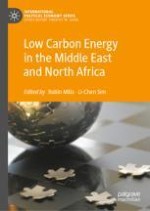2021 | OriginalPaper | Chapter
2. The Politics of Low-Carbon Energy in Iran and Iraq
Author : Robin Mills
Published in: Low Carbon Energy in the Middle East and North Africa
Publisher: Springer International Publishing
Activate our intelligent search to find suitable subject content or patents.
Select sections of text to find matching patents with Artificial Intelligence. powered by
Select sections of text to find additional relevant content using AI-assisted search. powered by

 .”
.”  .” 16. Accessed June 29, 2020.
.” 16. Accessed June 29, 2020.  .”
.”  .”
.”